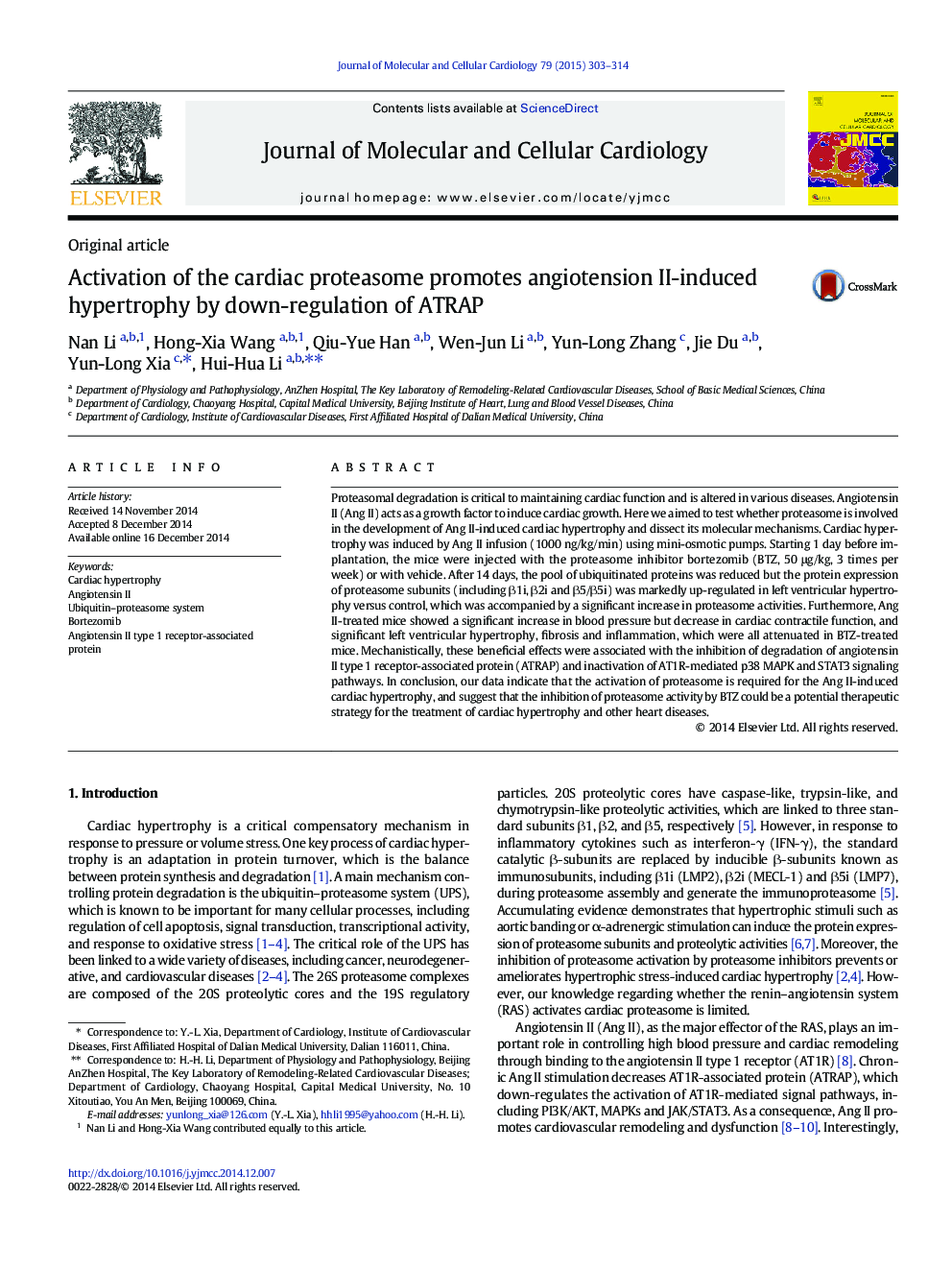| Article ID | Journal | Published Year | Pages | File Type |
|---|---|---|---|---|
| 8474489 | Journal of Molecular and Cellular Cardiology | 2015 | 12 Pages |
Abstract
Proteasomal degradation is critical to maintaining cardiac function and is altered in various diseases. Angiotensin II (Ang II) acts as a growth factor to induce cardiac growth. Here we aimed to test whether proteasome is involved in the development of Ang II-induced cardiac hypertrophy and dissect its molecular mechanisms. Cardiac hypertrophy was induced by Ang II infusion (1000 ng/kg/min) using mini-osmotic pumps. Starting 1 day before implantation, the mice were injected with the proteasome inhibitor bortezomib (BTZ, 50 μg/kg, 3 times per week) or with vehicle. After 14 days, the pool of ubiquitinated proteins was reduced but the protein expression of proteasome subunits (including β1i, β2i and β5/β5i) was markedly up-regulated in left ventricular hypertrophy versus control, which was accompanied by a significant increase in proteasome activities. Furthermore, Ang II-treated mice showed a significant increase in blood pressure but decrease in cardiac contractile function, and significant left ventricular hypertrophy, fibrosis and inflammation, which were all attenuated in BTZ-treated mice. Mechanistically, these beneficial effects were associated with the inhibition of degradation of angiotensin II type 1 receptor-associated protein (ATRAP) and inactivation of AT1R-mediated p38 MAPK and STAT3 signaling pathways. In conclusion, our data indicate that the activation of proteasome is required for the Ang II-induced cardiac hypertrophy, and suggest that the inhibition of proteasome activity by BTZ could be a potential therapeutic strategy for the treatment of cardiac hypertrophy and other heart diseases.
Keywords
Related Topics
Life Sciences
Biochemistry, Genetics and Molecular Biology
Cell Biology
Authors
Nan Li, Hong-Xia Wang, Qiu-Yue Han, Wen-Jun Li, Yun-Long Zhang, Jie Du, Yun-Long Xia, Hui-Hua Li,
